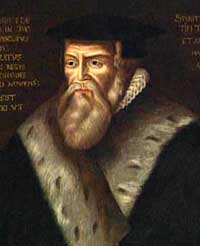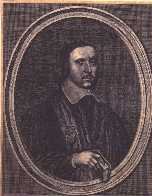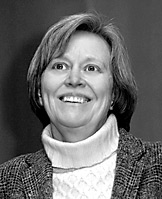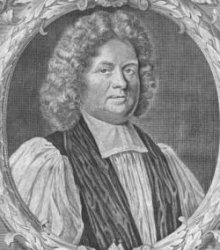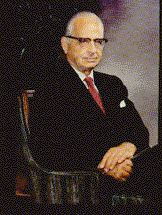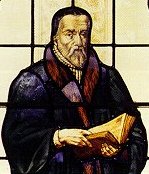- Talmage, Thomas DeWitt
- (1832-1901)
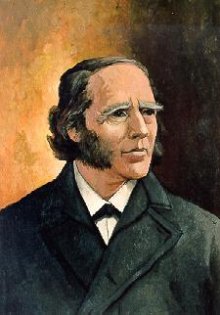
Thomas DeWitt Talmage
- US Presbyterian preacher
- sermons poorly organized
- his illustrations became the proof of his points
- TAUTOLOGY
-
- In a general sense any statement whose denial would be self-contradictory.
- E.g., "If you're here, you're here."
- Strictly speaking, tautologies are compound statements that are true or false by virtue of their form only, regardless of the nature of the content.
- Taylor, Alfred Edward
- (1869-1945)
- Congregational preacher and theologian
- professor at St Andrews, Edinburgh and Yale
- wrote
- Elements of Metaphysics
- The Faith of a Moralist
- founder of New Haven theology
- modified Calvinism
- ethical emphasized
- Philosophy of Spirit; spirit is ultimate reality but not same as Hegelian thought; man not only a purely physical being but also a spiritual one; all things (even inanimate things) have a kind of spiritual life of their own; emphasized spirit as the agent of action, rather than merely thought; strong empirical emphasis
- Teilhard de Chardin, Pierre
- (1881-1955)
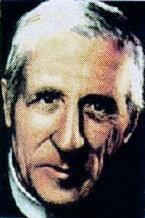
Teilhard de Chardin
- French Jesuit geologist
- wrote The Phenomenon of Man
- cosmic evolution similar to process theology
- Realist metaphysics
- TELEOLOGICAL
-
- Pertaining to first causes or ultimate purposes
- See
- Teleological ethical theory
- "Teleological outlook of Physical reality"
- Teleological argument for existence of God
- Teleological ethics
- TELEOLOGICAL ARGUMENT FOR EXISTENCE OF GOD
-
- Since there is order and logical, useful arrangement in the universe, then there must be an intelligence and a will that gave the universe its order, logic and use.
- TELEOLOGICAL ETHICAL THEORY
-
- Concerned with ends or the good rather than with moral obligation as such.
- Considerations of moral value have priority over considerations of moral obligation.
- Concepts of obligation, such as duty, ought, or right are definable in terms of concepts of value.
- Rightness is dependent on or connected in some way with the goodness or value of action or consequences.
- TELEOLOGICAL OUTLOOK OF PHYSICAL REALITY
-
- All things have an inherent tendency to fulfill a purpose.
- Aristotle said all substances possess entelechia (inherent tendencies) toward a telos (end).
- Temple, Frederick
- (1821-1902)
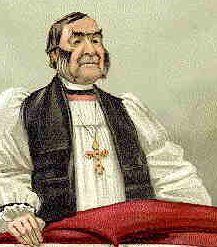
Frederick Temple
- Anglican
- Archbishop of Canterbury
- emphasized social action
- Temple, William
- (1881-1944)
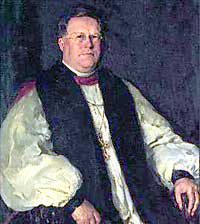
William Temple
- Anglican Archbishop of Canterbury
- wrote Nature, Man and God
- Realist metaphysics
- ecumenical leader
- sought social reform
- crusaded against slums, usury, dishonest, and greed in business
- Tennant, Frederick Robert
- (1866-1957)
- Anglican theologian and philosopher
- wrote
- Philosophical Theology
- The Concept of Sin
- taught at Cambridge University
- empirical epistemology
- ethical emphasized
- Philosophy of Spirit; spirit is ultimate reality but not same as Hegelian thought; man not only a purely physical being but also a spiritual one; all things (even inanimate things) have a kind of spiritual life of their own; emphasis on spirit as the agent of action, rather than merely thought; strong empirical emphasisd
- Tennent, Gilbert
- (1703-1764)
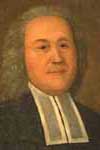
Gilbert Tennent
- US Presbyterian preacher
- son of William
- travelled with George Whitefield
- preached "The Danger of an Unconverted Ministry"
- helped start College of New Jersey (Princeton)
- Tennent, William
- (1673-1746)
- US Presbyterian founded Princeton
- worked with George Whitefield.
- Tenney, Merrill Chapin
- (1905-1985)
- professor at Wheaton College
- wrote New Testament Survey
- helped translate NIV
- Tertullian, Quintus Septimius Florens
- (c 160-c 225)

Tertullian
- Latin Church Father
- became a Montanist
- coined the word Trinity as one substance manifested in three persons
- developed understanding of original sin and relationship between faith and reason
- wrote a long answer to Marcion
- late in life he joined the sect of Montanists
- Thales
- (636-546 BC)

Thales
- Greek philosopher and scientist.
- One of the Seven Wise Men of Greece.
- Founder of Greek geometry, astronomy, and philosophy.
- Said that water (moisture) was the primary element from which the world was formed.
- THEISM
-
- It says religion is that which deals with the "unseen environment of absolute worth which demands worship" (Oman).
- Also see
- THEISM, ABSOLUTE
-
- Believes in one personal God (monotheism) having all the qualities of perfection: Omnipotence, Omnipresence, Omniscience, Love, Truth, etc.
- God is external to the world as creator and sustainer, but is actively involved in the world and is concerned.
- THEODICY
-
- The study of the problem of evil
- Epicurus said, either God would remove evil out
of this world, and cannot; or He can, and will not; or He has not the power nor
will; or He has both the power and will.
- If He has the will and not the power, this shows weakness which is contrary to the nature of God
- If He has the power but not the will, this is malignity and thus contrary to His nature.
- If He is neither willing nor able, He is both impotent and malignant and thus cannot be God.
- If He is both willing and able (which is consistent with the nature of God), where does evil come from and why doesn't He prevent it?
- Possible answers:
- Evil is the result of man's wickedness (but what about non-human evils: plagues, floods; or suffering innocent children?).
- Good can come of evil (but doesn't evil breed more evil?).
- Evil brings good in the long run (but men must live in the short run).
- Evil is a moral exercise (but why do innocent people need the exercise).
- Evil is undesirable but an unavoidable aspect of the best of possible worlds (but isn't God the one responsible for the design of the world?).
- What we call evil is not really evil but good (but if everything is good and we think it is evil, isn't that error an evil in itself?)
- Evil is necessary to highlight the good (but isn't good able to recommend itself?)
- Theodoret of Cyrrhus
- (c393-458)
- Bishop of Cyrrhus in Syria
- mediated in Nestorian controversy
- deposed and exiled by Robber Synod of Ephesus
- restored by Council of Chalcedon
- Theodotus
- (2nd cent)
- Byzantine leather merchant
- introduced dynamic monarchianism to Rome
- Jesus became Christ at His baptism or His resurrection
- Thomas, William Henry Griffith
- (1861-1924)
- Anglican who worked with R. A. Torrey and James M. Gray
- a founder of Dallas Theological Seminary
- Thomson, William (Lord Kelvin)
- (1824-1907)
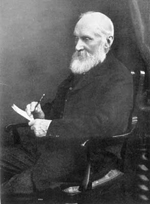
William Thomson
- British mathematician and physicist
- Worked in physics of heat and work
- proposed Kelvin scale of temperature
- made many scientific discoveries and technical improvements
- Thornton, Lionel Spencer
- (1884-1960)
- Anglican
- wrote
- The Incarnate Lord
- Revelation and the Modern World
- Realist metaphysics
- THOUGHT
-
- See Laws of thought
- THREE FORMS OF UNITY
-
- Three statements of creed adopted by Dutch Reformed churches
- Includes: The Heidelberg Catechism, Belgic Confession, and Canons of Dort
- Tillich, Paul
- (1886-1965)
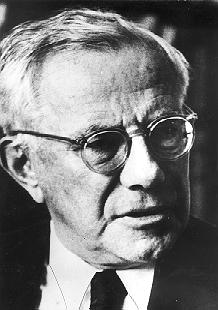
Paul Tillich
- German-US theologian
- wrote
- Dynamics of Faith
- Theology of Culture
- The Courage to Be
- The New Being
- Systematic Theology (3 vols)
- He used existential philosophy to create new theology not like liberalism or neo-orthodoxy
- God is not a being nor a Supreme Being; but as the ground or power of all being is basically panentheistic.
- Being is that in which all existence is grounded, but from which human existence is estranged.
- "Man is estranged from the ground of his being, from other beings, and from himself."
- Whereas Sartre sees an existential estrangement of human consciousness from all there is (i.e., being-in-itself) and a realization that in-itself consciousness is nothingness, Tillich sees an existential estrangement from the ground of being (i.e., the ground of all there is, including, e.g., human relations).
- He calls for a courage to be in the face of the various threats of non-being arising from estrangement.
- The goal is a new being, which occurs in a relationship of openness and acceptance to being.
- The new being is found in a love which manifests the power of being as a power of reconciling the estranged.
- Existential estrangement, e.g., arises from ultimate concern about that which is not ultimate.
- What ought to arouse ultimate concern is the unconditional ground of being itself.
- Hence concern, e.g., for a theistic God who is a personal being, but nonetheless a being alongside other beings, is not concern for being itself.
- The concern perpetuates estrangement because only being itself transcends all that exists as its ground, and only the concern for it that is manifested as love can bring about the new being.
- TIME, CONCEPTUAL
-
- The spatialized or mechanized time of clocks and mechanical counters one, continuous, and infinite, having one irreversible dimension (i.e., the absolute time of classical physics).
- TIME, PERCEPTUAL
-
- Experiential or "lived through" time, the succession of specious presents (units of lived-through presents rather than knife-edged presents), heteromorphic (each moment unique), essentially subjective but sharable in the group experiences of given cultures.
- Tindal, Matthew
- (c 1655-1733)
- English Roman Catholic Deist and rationalist.
- Said state, not priests, has authority.
- Religion has no miraculous element.
- Religion is good only for morality.
- Christianity must be tested by natural religion.
- Wrote Christianity as Old as the Creation.
- Creation is perfect, so nothing can or should be added to it.
- Toland, John
- (1670-1722)
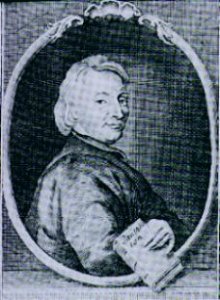
John Toland
- Irish Deist
- denied that Christianity introduced anything not previously known
- wrote Christianity Not Mysterious.
- Tolstoy, Count Leo Nikolaevich
- (1828-1910)

Tolstoy
- existentialist Russian
- rejected war and embraced poverty, labor, and vegetarianism
- wrote
- Death of Ivan Illich
- War and Peace
- Torrey, Reuben Archer
- (1856-1928)
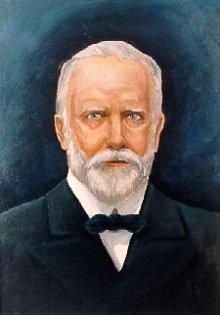
R. A. Torrey
- US Presbyterian/Congregational
- graduate of Yale
- worked with Moody
- Toynbee, Arnold Joseph
- (1889-1975)
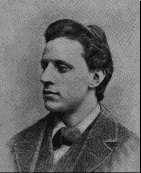
Arnold Toynbee
- historian
- wrote
- An Historian's Approach to Religion
- A Study of History
- history has some unitary order or design; it is orderly, rational flow of events that is going somewhere.
- Tozer, A. W. [Aiden Wilson]
- (1897-1963)
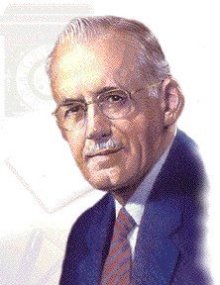
A. W. Tozer
- Christian and Missionary Alliance pastor
- Known for his powerful sermons and inciteful books
- Wrote many books including
- Knowledge of the Holy
- The Pursuit of God
- TRANSCENDENTAL
-
- See Kantianism
- Trine, Ralph Waldo
- (1866-1958)
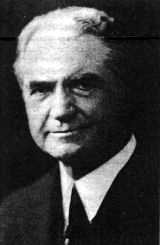
Ralph Waldo Trine
- wrote
- In Tune with the Infinite
- Absolute Idealism
- wrote
- Troeltsch, Ernst
- (1865-1923)
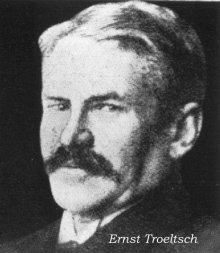
Ernst Troeltsch
- German theologian, philosopher, and social philosopher
- liberal
- Hegelian
- wrote
- Christian Thought: Its History and Application
- Gesammelte Schriften
- The Social Teaching of the Christian Churches
- Truett, George Washington
- (1867-1944)
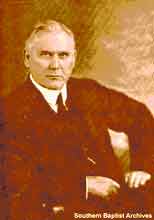
George Washington Truett
- US Southern Baptist
- served 41 years in one church
- accidentally shot a deacon on a hunting trip
- Turretin, Francis
- (1623-1687)
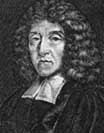
Francis Turretin
- Swiss Reformed theologian
- Calvinistic scholasticism
- Wrote Institutes of Elenctic Theology
- Tyconius
- (4th cent)
- Donatist theologian
- postmillennial view influenced Augustine
- Tylor, Edward Burnett
- (1832-1917)
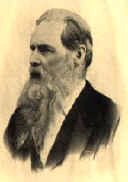
Edward Burnett Tylor
- Anthropology professor at Oxford
- Positivist
- Naturalist
- wrote Primitive Culture


